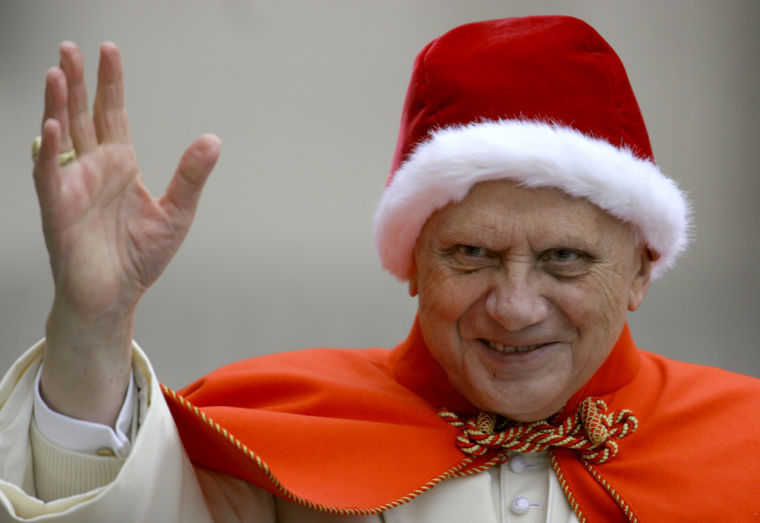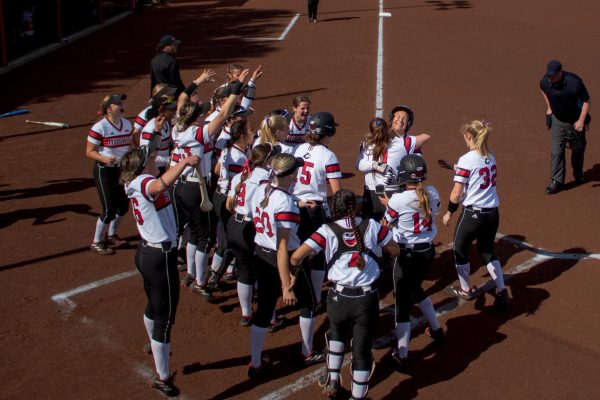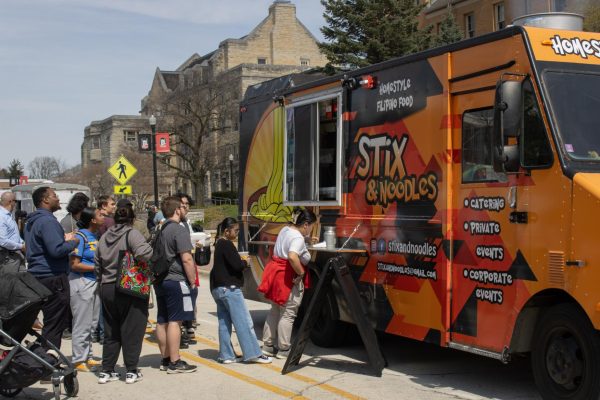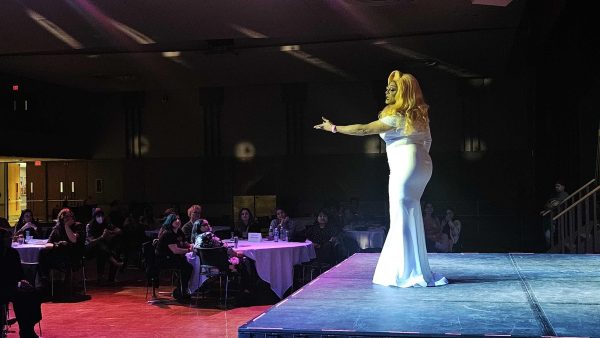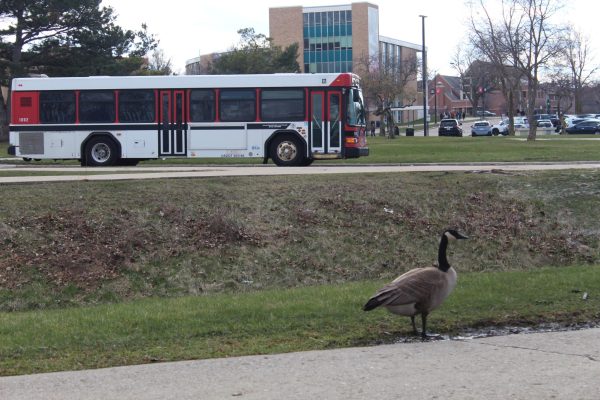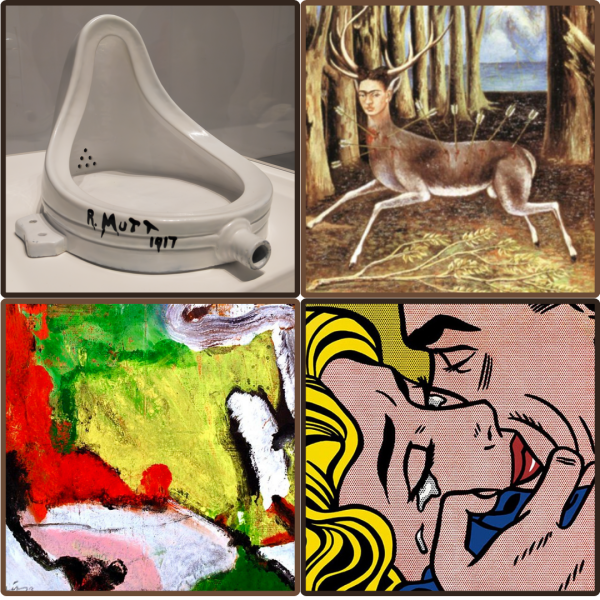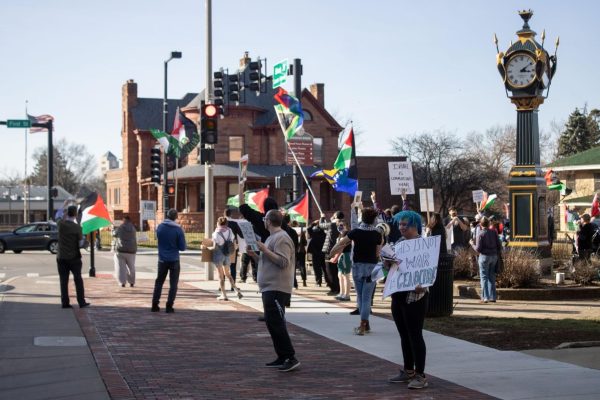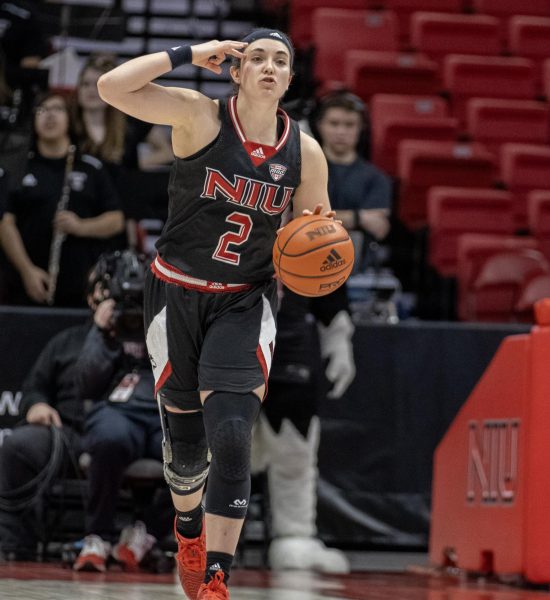DeKalb reacts to Pope Benedict XVI’s resignation
February 12, 2013
The community reacted to Pope Benedict XVI’s announcement to step down as news from the Vatican City reached the rest of the world this week. Cardinal Joseph Ratzinger was elected the 265th pope of the Roman Catholic Church in April 2005 and assumed the name Benedict XVI. He was the successor to pope John Paul II. Monday, the pope announced he would be stepping down at 8 p.m. on Feb. 28, citing his deteriorating physical and mental health.
Matthew McMorrow, parochial administrator of the Newman Catholic Student Center, 512 Normal Road, who received a history degree from NIU in 1998 and joined the Newman Center in July, detailed the justification for the pope’s resignation and described the burden that a pope must carry.
“It’s something Pope Benedict wrote about three years ago. He said that it’s within the rights of the pope to step down when he feels that he is no longer able, physically or mentally, to carry out the tasks that God sets before him to serve the people,” McMorrow said, “There’s about a billion Catholics so to think about the needs of everyone, all throughout the world, is a daunting task, governing the church and guiding that many faithful.”
This move shocked Catholics around the world. John Kendall, a Catholic and a junior community engagement and civic leadership major, was caught off guard by the news.
“I was surprised; I didn’t necessarily know what would happen afterwards, as I still don’t,” Kendall said. “That’s what I’ve been mainly focusing on.”
Kendall thought Benedict’s resignation and the election of a new pontiff could lead to changes for the more than 2000-year-old church.
“I would hope somebody [is elected] that is a little more socially progressive, maybe bridging gaps between other religions and things like that,” Kendall said.
Shane Sharp, an assistant professor of sociology whose expertise includes religion, understood the impact of the resignation and exactly how rare it is.
“It’s pretty shocking because popes rarely retire; they usually die in office, as it were,” Sharp said. “Nobody alive has ever experienced something like this, so I think it’s shocking to a lot of people.”
McMorrow said it is likely a new pope will be chosen before Easter, one of the biggest days of the year for the church. The cardinals from the world’s major cities will meet in the Vatican to vote on Benedict’s successor. After the vote, smoke will rise from the Sistine Chapel; depending on the color of the smoke, it will indicate a new pope has been elected or another vote will take place.
Benedict is the first pope to resign since Gregory XII in 1415, who stepped down as part of a complex deal to end the Western Schism, which had split the church when two men simultaneously claimed the papacy, according to Brian Sandberg, assistant professor in the department of history.
“The circumstances of the last resignation were markedly different: huge crises in the church and a pope resigning as part of a essentially political deal to lead to one pope again,” Sandberg said. “So it wasn’t health reasons that lead to Gregory XII stepping down. It was instead very high-level religious politics.”
Amid the speculation as to who the next pope will be lies the question of where he will be from. Europe contains less than a quarter of the world’s Catholics, whereas Latin America contains almost half of all Catholics. Pressure could be on the Vatican and the conclave of cardinals to elect a pope who represents a majority of Catholics, but others say that a spiritual vision should be the deciding factor.
However, as J.D. Bowers, associate vice provost of teacher education and associate professor of history, points out, Benedict has ties to many of the cardinals who will select his replacement.
“A lot of them were appointed by John Paul II and the current pope and so I don’t see it leading to a sweeping change, it’s not an institution that normally does that, especially through the selection of a pope,” Bowers said, “It’s not going to be an Earth-shattering or cataclysmic change. It will be an unusual change because we’ve never had an ex-pope.”


